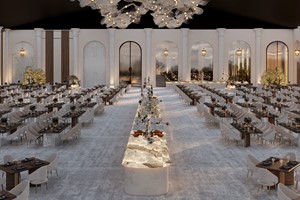The global war on sugar has reached a new front: taxation. In recent years, a growing number of countries have implemented sugar taxes, levies designed to curb consumption of sugar-sweetened beverages (SSBs) and improve public health outcomes. This policy, while seemingly straightforward, has ignited a complex and heated debate, pitting public health advocates against the powerful beverage industry and raising important questions about economic equity and effectiveness.
A Global Movement Fueled by Health Concerns:
Mexico, in 2013, fired the first shot in this fiscal battleground. Since then, over 50 countries, including the United Kingdom, France, South Africa, and Thailand, have followed suit. The primary driver? Spiraling obesity rates, particularly among children, fueled by the pervasive consumption of SSBs. The World Health Organization (WHO) (image of WHO logo) has added its voice to the chorus, recommending a 50% price increase on SSBs as a critical tool in combating the global sugar crisis.
Industry Giants: Adapting or Opposing?
The beverage industry, unsurprisingly, has not welcomed the sugar tax with open arms. Coca-Cola and PepsiCo, the titans of the soda world, have actively lobbied against its implementation, arguing it unfairly targets their products and disproportionately impacts low-income consumers. In response, they have explored two main avenues:
- Reformulating drinks with artificial sweeteners: This has raised concerns about the long-term health implications of artificial sweeteners, with studies suggesting potential links to gut dysbiosis and other health issues.
- Launching healthier alternatives: While some efforts have been genuine, such as sugar-free sodas or fruit-infused sparkling waters, others have been criticized for simply replacing sugar with other unhealthy ingredients like artificial flavors and high fructose corn syrup.
The Challenges: Balancing Public Health and Economic Concerns:
While the potential of sugar taxes to reduce SSB consumption is promising, their long-term effectiveness and ethical implications remain under scrutiny:
- Regressive Tax: The concern is that the burden falls disproportionately on low-income individuals who rely on SSBs as a cheap source of calories. Research suggests that well-designed taxes with exemptions for low-income individuals and families can mitigate this issue.
- Effectiveness: The effectiveness of sugar taxes depends on various factors, including the tax rate, product exemptions, and marketing strategies employed by the beverage industry. Studies show that taxes can lead to a moderate decrease in SSB consumption, but the long-term impact requires further monitoring.
- Unintended Consequences: The potential for job losses in the beverage industry and the rise of black-market production of untaxed sugary drinks are concerns that need to be addressed through effective enforcement and complementary policies.
- Revenue Allocation: Ensuring the tax income is used as intended for public health initiatives, such as nutrition education programs or school lunch programs, is crucial for building public trust and maximizing the policy's impact.
The Road Ahead: A Multifaceted Approach to a Sweetened Future:
The sugar tax debate is far from settled. As countries continue to experiment with this policy, a multi-pronged approach will be crucial to ensure its success:
- Education: Empowering consumers with knowledge about the health risks associated with excessive sugar intake through public health campaigns and targeted education initiatives.
- Reformulation: Encouraging the industry to develop genuinely healthier alternatives to SSBs by setting clear standards for sugar content and promoting healthier ingredients.
- Taxation: Implementing well-designed sugar taxes that consider economic factors, target specific product categories, and allocate revenue effectively.
- Research and Monitoring: Continuously monitoring the effectiveness of sugar taxes and their impact on public health, consumer behavior, and the beverage industry to inform future policy adjustments.
Finding the optimal balance between these approaches will be key to ensuring that the sugar tax does not leave a bitter taste in anyone's mouth. By prioritizing public health, promoting transparency, and fostering collaboration among stakeholders, the global war on sugar can move closer to achieving a sweeter future for all.














